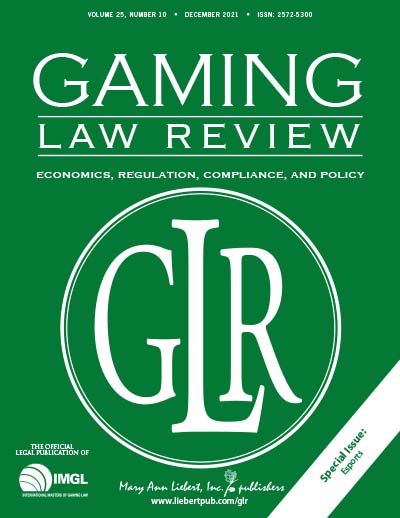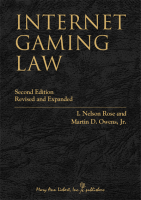Aims & Scope
Gaming Law Review (GLR) presents the latest developments in legislation, regulation, market performance, emerging technologies, and judicial decisions affecting gaming around the world. As the first journal focused on this specialized area of law, it provides exclusive access to historic and current developments in the gaming industry. With authoritative coverage of the legalities of intellectual property and licensing requirements, past and current litigation, and tax issues, the Journal is cited more often by legal courts than any other gaming law journal.
Gaming Law Review coverage includes:
- All aspects of commercial and tribal gaming law
- Legal aspects of all forms of gaming, including casino games, poker, lotteries, sports betting, horse racing, daily fantasy sports, and social gaming
- The regulatory challenges of emerging technology, including Internet and digital gaming
- Gaming license requirements within and across jurisdictions—including the critically important issue of cross-border regulation within the European Community
- Legal aspects of credit. collection of debts, and online payment processing
- Litigation affecting casino operations—including non-gaming legal issues (e.g. employment law, banking regulations, and even personal injury law) as applied to casinos
- Economic impacts of gaming issues and growth, including market analysis
- Regulatory and licensing and tax structures
- Intellectual property of casinos, gaming equipment manufacturers, and online gaming websites
Gaming Law Review is under the editorial leadership of Editor-in-Chief Steve Ruddock, BettingUSA Group; Executive Editor Heidi McNeil Staudenmaier, JD, Snell & Wilmer, L.L.P; Economics Editor Richard A. McGowan, SJ, Boston College, and other leading investigators. View the entire editorial board.
Audience: Lawyers working in casino and gaming legal departments; entertainment and sports lawyers; intellectual property and licensing lawyers; among others
Society Affiliations
The Official Legal Publication of:

